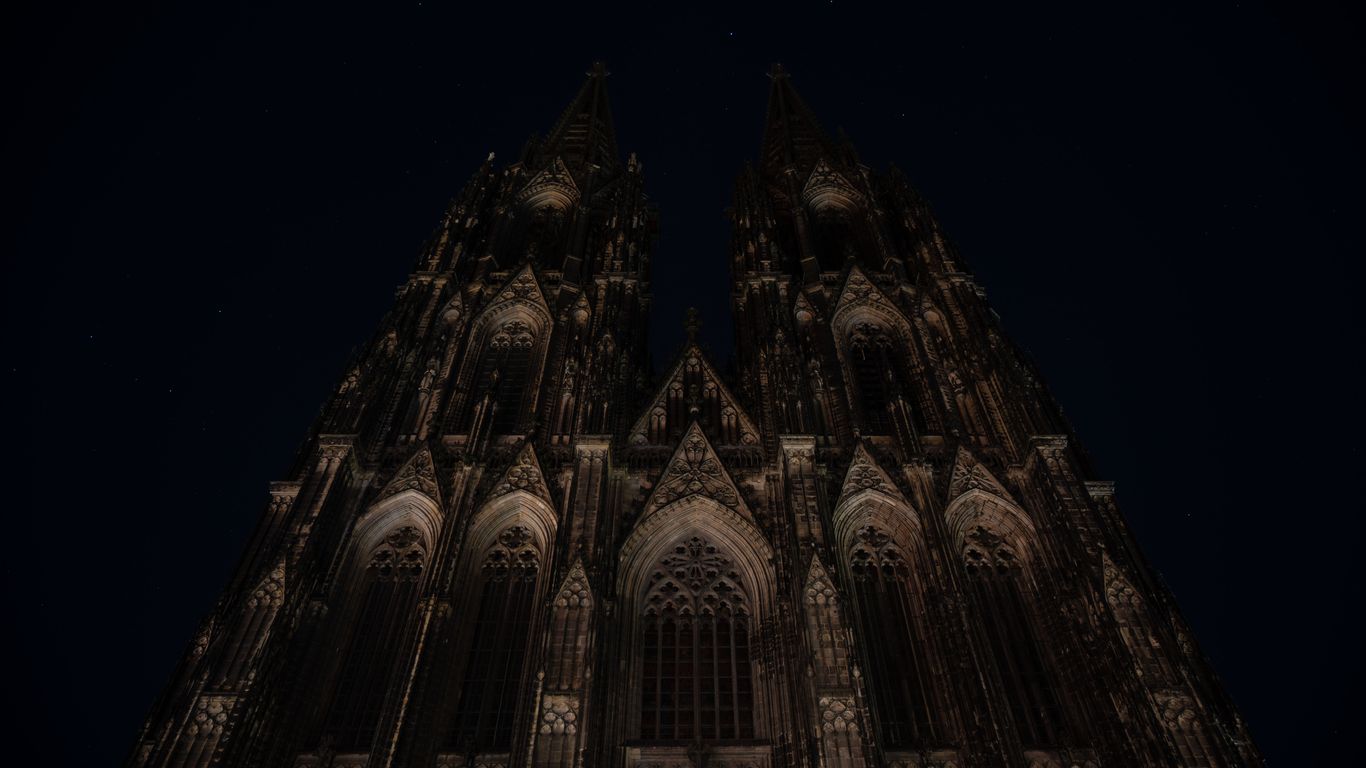Amid a full-on crisis energy, Europe is taking more steps to cut consumption.
What it means: The impact of Russia's war in Ukraine — and the combination of sanctions and embargoes drastically curbing Russian gas supplies — is beginning to have real effects on the West's standard (and cost) of living.
Big picture: In late July, the European Union's 27 member states agreed to voluntarily cut gas consumption by 15% between August and March 2023.
- As part of the agreement, mandatory cuts could be imposed if the energy supply situation worsens.
What's happening: A range of government-imposed restrictions, akin to the kind of restraints during wartime, here is a sampling.
In Germany:
- Cologne's magnificent cathedral — normally lit throughout the night — now goes dark over night. Public buildings, museums and other landmarks — such as the Brandenburg Gate in Berlin — will no longer be illuminated overnight either.
- In Hanover last month, hot water was cut off at public buildings, as the city seeks to cut consumption by 15%.
- The southern city of Augsburg decided to turn off traffic lights.
Spain:
- Congress agreed to temperature limitations — air conditioning no cooler than 27 degrees Celsius, or nearly 81 degrees Fahrenheit.
- After 10 p.m. shop windows and unoccupied public buildings won't be lit.
Italy:
- Air conditioning in schools and public buildings has already been limited in what the government labeled "Operation Thermostat," starting in May.
- Italy is one of the European countries most reliant on Russian energy.
France:
- While roughly 70% of its energy comes from nuclear power, France has committed to cutting natural gas consumption as well.
- Shopkeepers will now be fined for keeping doors open and air conditioning running, a common practice.
- Illuminated signs will be banned between 1 a.m. and 6 a.m.
What we're watching: Whether the discomfort of the energy crisis — which could worsen during winter — reduces public and political support for sanctions on Russia in response to its brutal invasion of a smaller neighbor.
- Analysts say Vladimir Putin hopes the strain of the energy crisis could split Europe's nations, weakening its unified response to the Ukraine war. That might help Russia to wriggle out of some painful sanctions.



Recommended Comments
There are no comments to display.
Join the conversation
You can post now and register later. If you have an account, sign in now to post with your account.
Note: Your post will require moderator approval before it will be visible.